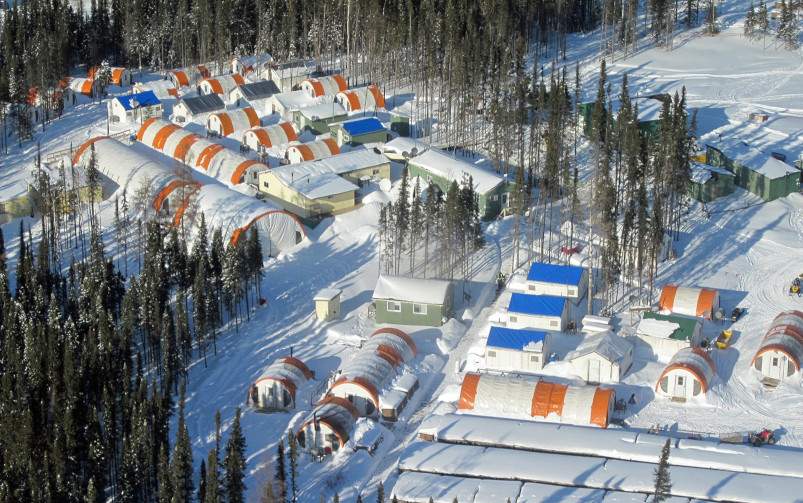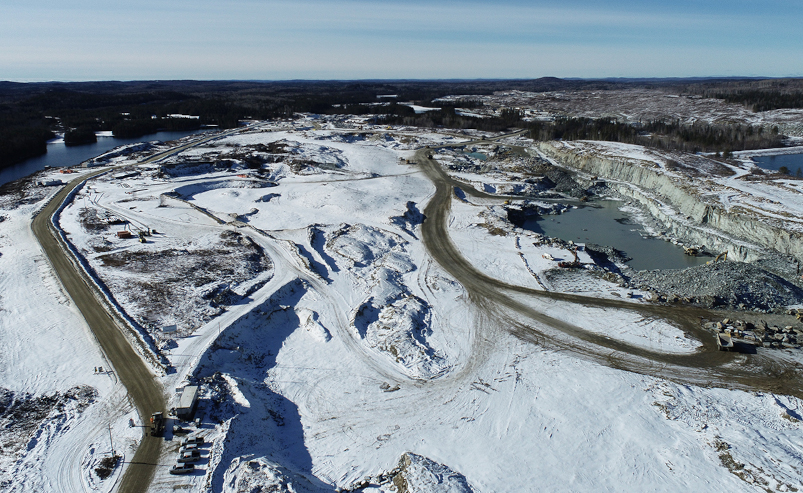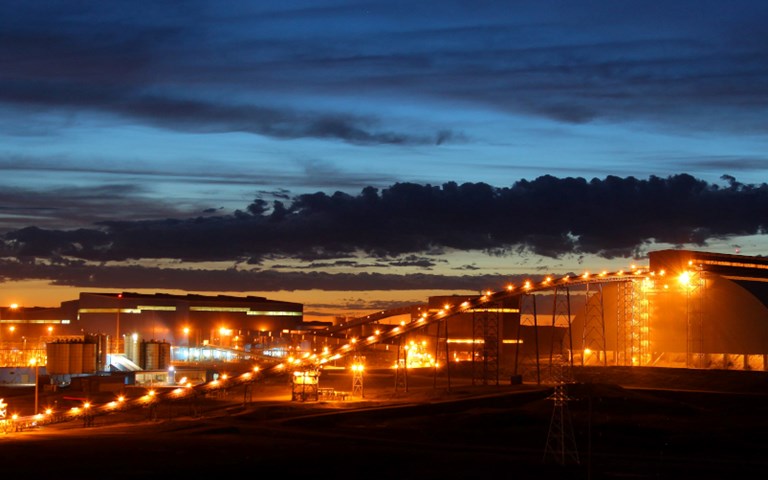In a case study submitted the the Global Mining Guidelines Group, Rio Tinto used virtual reality to train its employees at the Oyu Tolgoi mine in Mongolia. Courtesy of Rio Tinto.
(Like what you’re reading? Get our weekly recap delivered straight to your inbox each Friday.)
Welcome back to your weekly mining news recap, where we catch you up on some of the news you may have missed. This week’s headlines include British Columbia unveiling its Mining Innovation Roadmap, Alamos Gold losing its licence to mine on Turkey’s Kaz Mountains, and Alberta's NDP advancing legislation to ban coal mining in the Canadian Rockies.
Despite the start of the COVID-19 pandemic in 2020, the mining industry did not suffer in terms of attracting capital and financing for exploration and development projects, as metal prices rose. Rather, the main hurdles companies faced were travel bans and quarantines, which made it difficult to visit mining projects, and unpredictable changes to supply chains, such as pricing or delivery delays.
The Mining Association of British Columbia has released a Mining Innovation Roadmap that includes goals and action items designed to help the province's mining industry attract investors and remain environmentally sustainable and globally competitive. The roadmap focuses on building an innovation hub to foster collaboration between sectors, outlines ways to improve regulation rules to support new technologies, leverage B.C.'s environmental, social and governance practices and build the workforce of mines.
Evolution Mining is buying all Battle North Gold’s assets, which include the Bateman Gold project in Red Lake, Ontario, in a deal worth $343 million. With the acquisition, the Australian miner will be adding the Bateman Gold project to its Red Lake gold complex, which the company purchased from Goldcorp for $632 million in 2019.
The Canada Infrastructure Bank is planning to set up a $1 billion infrastructure initiative that will encourage more investments in First Nation, Inuit and Métis communities, as reported by CBC. Loans covering up to 80 per cent of a project’s total capital costs will be provided to fund clean water, broadband, public transit, clean energy, trade and transportation projects. The First Nations Major Projects Coalition and Labourers International Union of North America have also signed a memorandum of understanding to work together to boost First Nation employment opportunities, increase their access to investment capital opportunities and enhance equity ownership of projects on their territories.
Alberta’s opposition NDP is proposing a bill that would ban all future coal mining and related activities on the eastern slopes of the Rocky Mountains, as reported by Global News. Additionally, the bill would cancel all coal leases on some lands and halt planned changes to water allocation in the region. This proposal precedes the public consultations the United Conservative government will be holding starting Mar. 29 on developing coal mining on the mountains.
The Global Mining Guidelines Group has published four case studies that focus on how companies can successfully migrate the skills of their workforce to transition to autonomous mining. Rio Tinto, Vale and two other anonymous sources shared their experiences in the case studies and provided examples of their communication, skills training and management strategies that helped facilitate the migration to autonomous mining.
A report by Fitch Solutions estimates that the demand for nickel used in battery cathodes for electrical vehicles will have an annual average growth rate of 29 per cent from 2021 to 2030, as reported by Mining.com. According to the report, nickel is expected to surpass lithium and cobalt demands. However, the metal’s growing demand is creating concerns over its future supply availability. If there is a shortage of battery-grade nickel, Fitch predicts that automakers might use lithium-iron-phosphate batteries for vehicles in the future.
The United States government is seeking to increase Canadian production of minerals and materials used to make electric vehicles, as reported by Reuters. The U.S. Department of Commerce set up a virtual meeting with 30 miners and battery manufacturers – including Tesla Inc., Talon Metals Corp. and Livent – to discuss how to help companies expand in Canada and build a robust U.S.-Canada supply chain.
Alamos Gold’s licence to mine gold in the Kaz Mountains has been revoked by the Turkish Agriculture and Forestry Ministry, as reported by Hürriyet Daily News. Construction has been idled since 2019, when the company was forced to suspend work on the project after the renewal of its mining concession was delayed amid protests. Alamos Gold has yet to release a statement about this latest development. According to a ministry official, Alamos Gold was not able to request renewal of its permit to mine in the area and as a result, the licence was cancelled. If the company wants to resume operations, it will have to restart the licensing application process from the beginning.
Thunder Bay has set its eyes on becoming a major player in Canada’s mining supply industry, as reported by Northern Ontario Business. The Thunder Bay Community Economic Development Commission has published a Mining Readiness Strategy to determine ways the city can support the needs of its current mines in production and the 15 major exploration projects in the pipeline. The city hopes to grow its supply sector, attract more mine development firms and add services for miners such as catering, site security and health and safety professionals.
If you’ve got feedback, you can always reach us at editor@cim.org. If you’ve got something to add, why not join the conversation at our Facebook, Twitter or LinkedIn pages? Like your recap with a few more gifs? Check out our mining news recap stories on our Instagram.
Remember to stay safe, keep your distance and wash your hands!




